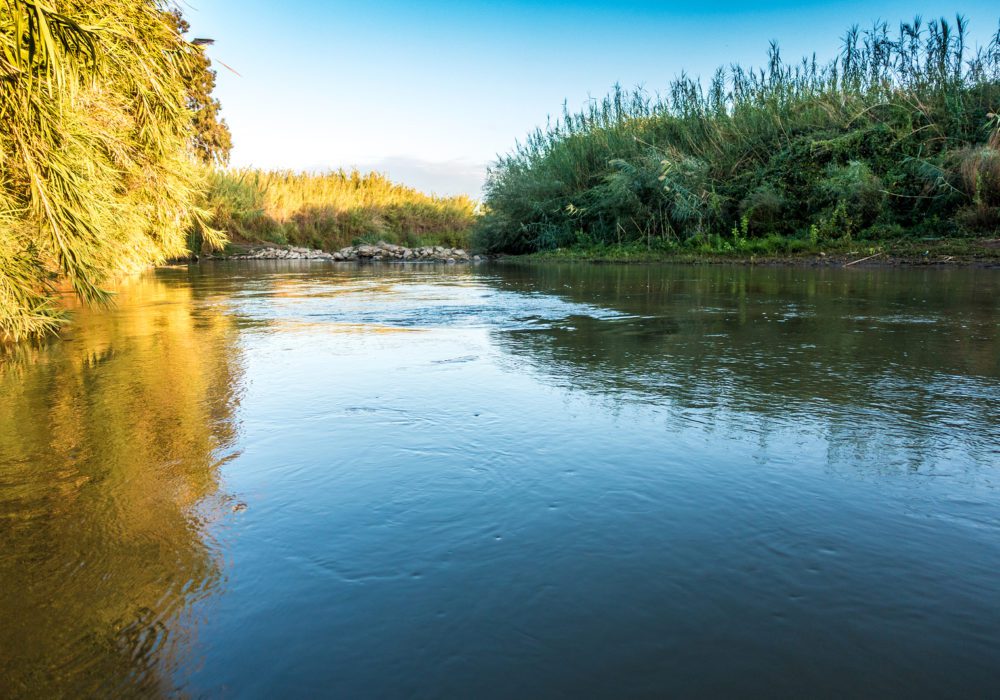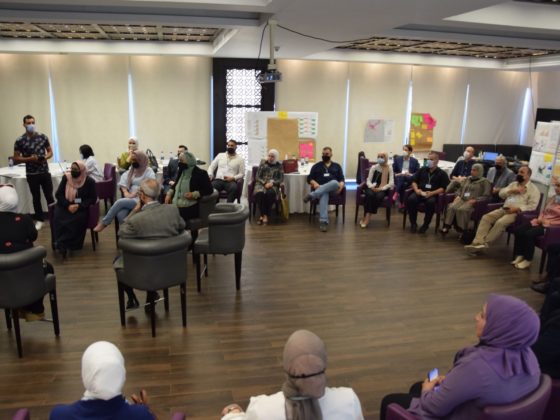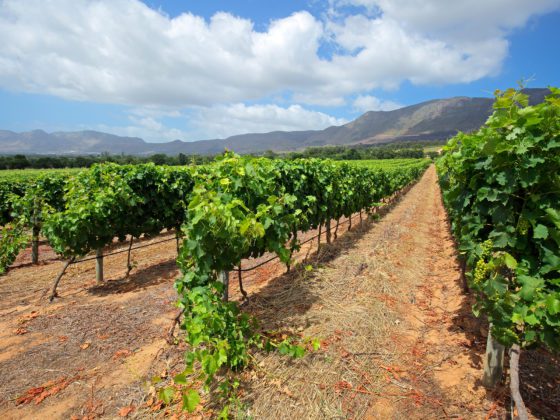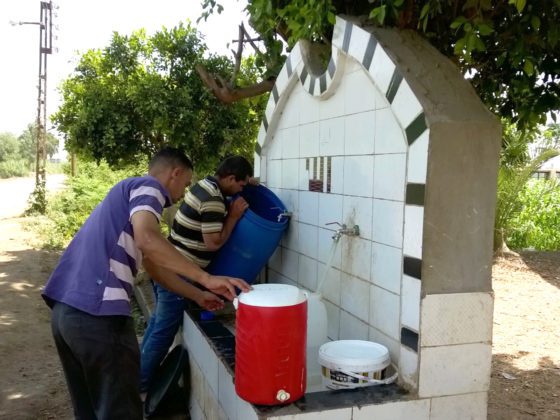Ram Aviram hails from Israel. He was active for many years in the Ministry of Foreign Affairs before becoming chief of staff for then–Foreign Minister Shimon Peres and subsequently, in the early 2000s, Israel’s ambassador to the Greece. For almost 30 years, Aviram has been involved in water diplomacy, most prominently leading the multilateral part of the peace process that explicitly included water-related questions. On a visit to the United States, Ambassador Aviram held a workshop with faculty and students and gave a keynote address on Hydro-Politics in the Jordan Basin at the Darden Business School for the Global Water Initiative’s sixth edition of the World Water Events.

Israel is one of the most arid countries on earth. In addition, together with its neighbors, Israel has experienced very significant population increases in recent decades. In your talk, you mentioned the important role that desalination has played in Israel especially in recent years. You also pointed to the strategic role desalination can play in the future. Can you clarify this?
For many decades, Israel has depended on “God’s good will for rain” (with cycles of drought years) and on the understanding of its neighbors where water is concerned. As the country overused its natural water resources, depletion and degradation of the water’s quality have followed. Its growing population has added to the demand for water. The development of a large-scale seawater desalination program in the last decades has been a game changer. Desalinated water currently supplies 60%–70% of Israel’s domestic (residential) needs, or around 600 million cubic meters every year. This strategic solution may be relevant also for other countries, as most of world’s population live in urban areas less than a hundred kilometers from the ocean’s shore.
Even though seawater desalination is growing quickly around the world, few countries use it as a major resource. Desalination is expensive and should be implemented only as a last resort, or as part of a comprehensive program of efficient water use by all users.
To increase water use efficiency, Israel took the following steps:
It drastically reduced the use of fresh water for irrigation by using intensive irrigation systems, developing precision agriculture methods and, last but not least, relying heavily on treated wastewater. Israel also increased the efficiency of residential water use while reducing “non-revenue water” that captures non-paying water users. To this end, it relied on economic incentives such as pricing policies and management reforms, as well as cutting-edge technologies (the Internet of things, big data analytics, and machine learning) that help reduce water losses in municipal systems and improve monitoring and management of the water networks.
What certainly helped Israel’s ambitions with desalination was the discovery of off-shore natural gas fields in recent years. It is well known that desalination is a heavy consumer of energy (the water sector in Israel uses 7%–8% of the total electricity production). Abundant natural gas has mitigated water prices as well as the carbon footprint.
This new artificial source of water has had a strategic effect on Israel’s hydro-political position. Desalination allows the country more flexibility, as it has access to more water. Moreover, there is more clarity about the exact price of water: it is the procurement price for the government from the private manufacturer, which encourages water trading. Its less-stringent water constraint allows Israel to satisfy demand for more water by the Palestinian Authority and enter into special and advanced agreements with Jordan. Those water arrangements improve the relations between Israel and its neighbors, reduce competition for a scarce resource, and deepen cooperation among the parties.
In your talk you discussed the role that transboundary water diplomacy could play. You called it “low politics” that could contribute to cooperative and conflict-free situations. What did you mean exactly? Can you illustrate this in the Israeli context?
Israel shares the Jordan River with four other riparians: Lebanon, Syria, Jordan, and the Palestinian Authority. The region is one of the world’s scarcest in terms of water, and competition for water as well as the potential for cooperation is high. While one would prefer a basin-wide agreement that would lead to more efficient and equitable use of the river’s water, one should realize that other factors beyond water determine the level of cooperation and conflict. The hydro-politics of the basin is based on the overall relations among the parties; the balance of power among them along military, economic, and societal dimensions; and the strategic interest of the hegemonic power in facets other than water.
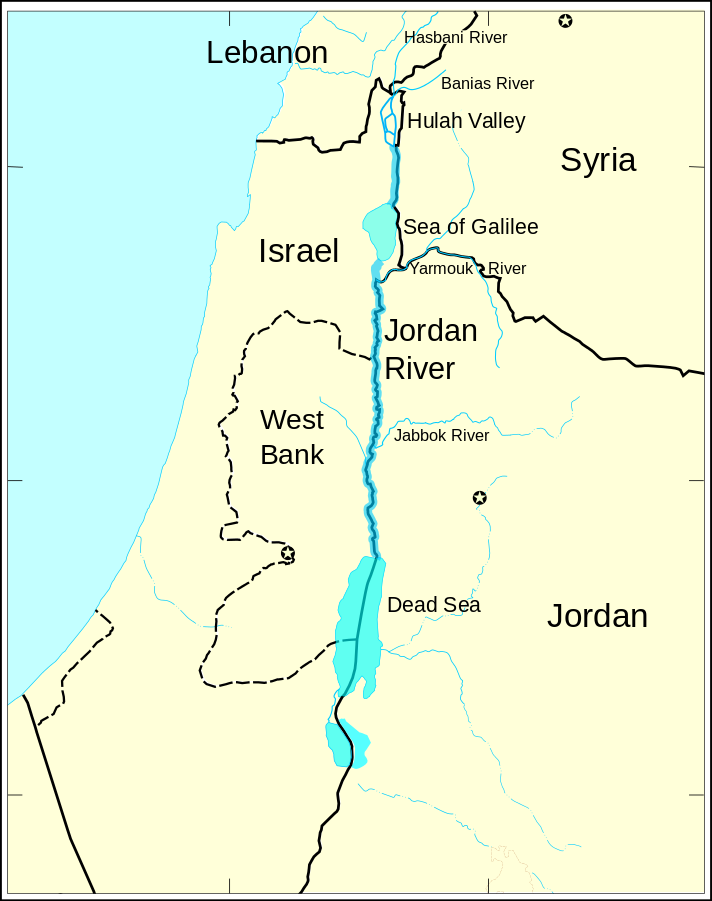
Israel’s hydro relations with Syria and Lebanon, for example, are in a state of war to this very day. In other words, there is a complete lack of cooperation and unilateral actions are taken on all sides. During the second half of the last century, for example, we witnessed attempts by Syria to divert Jordan River water away from Israel, which used military force to end such attempts. In 1967, Israel captured the Golan Heights, which include parts of the Jordan. Since then, Syria’s ability to control the river has been reduced dramatically. However, Syria has kept on damming the upper tributaries of the Lower Jordan River and it is using about 300 MCM per year, out of about 1 billion cubic meters (BCM) per year of this part of the river.
The hydro-political relations between Israel and the Palestinian Authority depend on the status of their political relations. From 1967 until the interim agreement of 1995, when Israel was the sole sovereign over the West Bank, Israel managed all the water in this part of the basin. The 1995 agreement gave some powers to the Palestinian Authority, especially to supply water to Palestinian customers in the area under its jurisdiction. Its ability to control the sources of supply (both the Jordan River and Mountain Aquifer) remained very limited, however, due to the Israeli occupation. Moreover, because the Palestinian Authority lacks a connection to the seashore, Israel is also a supplier of desalinated water to the Palestinian Authority. Efforts to create a different framework of cooperation during the 1990s (for example with the Multilateral Peace Process) were successful only in the short run, but failed in the long run. It was proven again and again that managing water resources, however important these may be, is “low politics” compared to hardcore issues such as statehood, borders, and security. Water issues will be solved only when the “high politics” are resolved.
Israel’s hydro-political relations with Jordan are an interesting case study illustrating how water relations evolve over the years alongside the overall relations between the parties. Those relations have developed from unilateral actions to full cooperation. One can also see how Israel, the stronger of the two, has used water issues to strengthen its relations with the Kingdom of Jordan through cooperation at critical moments. There are four distinct periods in the Israel-Jordon relationship:
- 1948–1974: A period of war, in which each side tried to capture as much as possible of the shared water resource.
- 1974–1994: Acts of hostility were reduced to rhetoric; ad-hoc coordination of the management of some water activities was permitted.
- 1994–2010: The parties were cooperating in the framework of the peace treaty, which was signed between both countries and includes arrangements for solving all water issues between them. In this framework, the allocation of quantities were agreed upon as well as a long list of mutually supportive actions. For example, Israel stores water for Jordan between winter and summer, and Jordan allows Israel to pump water from wells on the Jordanian side of the Araba Valley. During this period, at a few critical moments, Israel chose to interpret the agreement in Jordan’s favor and increased the water supply to Jordan, which solidified cooperation in other fields of interest to Israel, such as strategic security.
- 2010–today: Israel has introduced seawater desalination and has opted for a large-scale desalination program, together with Jordan. In this context, the first stage of the Dead Sea–Red Sea project is the most significant one. This program includes the establishment of a Jordanian desalination plant in Aqaba. Israel will buy desalinated water for its own needs in the southern part and will, in return, sell the same quantity of desalinated water to Jordan in the northern part of the country, closer to the centers of demand in the Jordanian capital, Amman.
Indeed, in my view, cooperation over water resources can strengthen relations or lead to limited conflicts. However, water can play only a limited role in shaping or modifying the overall relations among riparians.
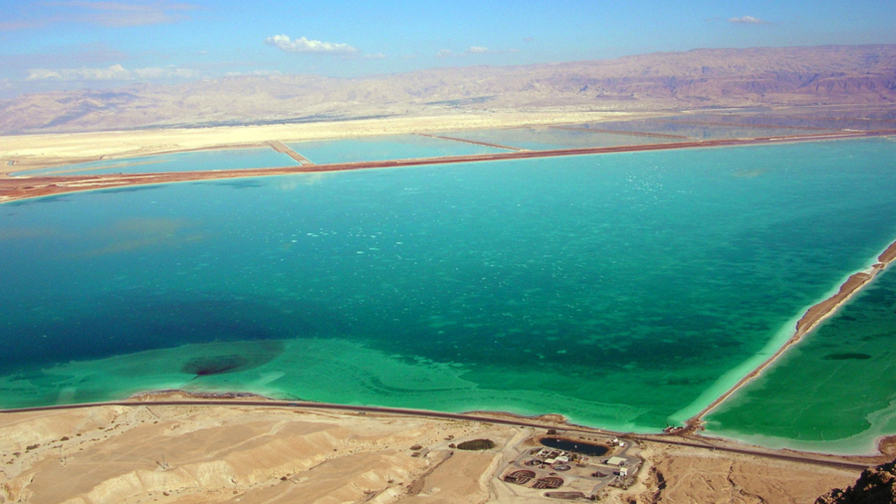
Can you say something about the fate of the Dead Sea? Why is the falling water level a concern, and what might prevent the potential loss of this lake?
The Dead Sea is a terminus lake which is fed mainly by the Lower Jordan River. In the past 50 years, a dramatic increase in water withdrawals, combined with deepening and longer drought years caused by climate change, has reduced the river’s flow to around 10% of its historical volume. In addition, the potash industries on both sides of the Dead Sea are actively drying up parts of the lake due to their mineral extraction process. The consequences are devastating. The Dead Sea’s water level lowers by about one meter a year—the lake is drying up. The water quantity needed even to stop this tendency is estimated at 400 to 500 MCM per year. Unfortunately there is no way to restore the historical flow of the river. Israel and Jordan have considered alternative solutions. The most practical one is the first stage of the megaproject, the Red Sea–Dead Sea Water Conveyance (whose total cost is estimated at $10 billion–$12 billion). The goals of the project are to pump seawater from the Aqaba bay, desalinate part of it, and use over 200 kilometers of pipeline to bring the water to the Dead Sea, which lies about 420 meters below sea level.
The project became regional when the World Bank brought Jordan, Israel, and the Palestinian Authority together to sign an agreement in which the Palestinian Authority will also be able to purchase desalinated seawater.
As we speak, tenders for the project are being published. We hope it will materialize. From my perspective, it is the only hope for the Dead Sea.
Further reading:
Ram Aviram, David Katz, and Deborah Shmueli, “Desalination as a Game-Changer in Transboundary Hydro-Politics,” Water Policy 16, no. 4 (August 2014) 609–2

